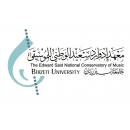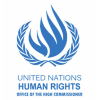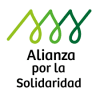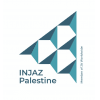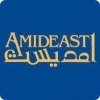RFP Mid-term Evaluation
Call for Proposal
Mid-term Evaluation
“Gaza Sings: Young Palestine Raises Its Voice”
Established in 1993, Edward Said National Conservatory of Music (ESNCM) is a specialized music institution that works on a national level. “Gaza Sings: Young Palestine Raises Its Voice” is a 3-year project (11/2016 – 11/2019) funded by the Norwegian Ministry of Foreign Affairs (MFA) that supports the creative capacities of Palestinian children and youth empowering them -as producers of culture- to create and disseminate artistic productions through local and international partnerships. The project contributes to enhancing and expanding music education and promotion in Gaza, enhancing cultural participation and supporting and promoting productions by young and professional Palestinian.
ESNCM is seeking qualified evaluation consultant (firms or individuals) to conduct a mid-term evaluation to help ESNCM management and program team examine the level of achievement, challenges and lessons learned. The evaluation will help ESNCM identify the interventions that best promote and enhance capacities of Palestinian children and youth as producers of culture.
Required qualifications
The evaluation may be carried out by an individual consultant or a team of consultants with the following qualifications:
- Master’s degree or higher academic degree related to social, cultural or community development studies.
- Proven work experience with NGOs in the field of youth and culture.
- Experience in the evaluation of similar programs, quantitative/qualitative analysis and participatory evaluation methods.
- Working knowledge in the Palestinian context particularly in the Palestinian cultural scene.
- Ability to work in Gaza Strip and in the West Bank.
- Proficiency in written and spoken English and Arabic.
Interested consultants should review the full ToR for this consultancy.
The consultants are requested to submit their detailed Financial & technical offer, action plan marking the following in the subject line “Gaza Sings Mid-term Evaluation” to [email protected] by September 22nd, 2018.
Edward Said National Conservatory of Music http://ncm.birzeit.edu
Established in 1993, Edward Said National Conservatory of Music (ESNCM) is a specialized music institution that works on a national level in 3 broad areas: a) education: regular and outreach programmes; supplementary activities including running orchestras and ensembles b) audiences building: organizing 5 festivals and special music events and producing and distributing music productions locally and internationally and c) investing in culture infrastructure: enhancing the ESNCM premises and the ability of the branches to deliver advanced music education, equipping and managing the recording studio and operating the string instruments repair workshop and factory.
ESNCM operates through its six branches in Jerusalem, Ramallah, Bethlehem, Nablus and Gaza and through its outreach program in Hebron, Gaza, the Old City of Jerusalem, Dheisheh and Shu’fat refugee camps.
Project description
“Gaza Sings: Young Palestine Raises Its Voice” is a 3-year project (11/2016 – 11/2019) funded by the Norwegian Ministry of Foreign Affairs (MFA) through the Representative Office of Norway.
The project supports the creative capacities of Palestinian children and youth empowering them -as producers of culture- to create and disseminate artistic productions through local and international partnerships. The project contributes to enhancing and expanding music education and promotion in Gaza (at least 500 students/year), enhancing cultural participation (16,000 people) and supporting and promoting productions by young and professional Palestinian musicians (18 productions involving at least 700 students/musicians/artists). The project works on 3 main components:
- Supporting the Gaza Music School with enhancing and expanding music education and fostering cultural participation.
- Supporting and promoting creative productions by young and professional Palestinian artists.
- Promoting Palestinian music and artistic productions by publicizing the project’s activities and achievements
Purpose and objectives of the midterm evaluation
The midterm evaluation of “Gaza Sings: Young Palestine Raises Its Voice” is part of its deliverables and is an important component of the development process to help ESNCM management and program team examine the level of achievement, challenges and lessons learned since the start of the project in November 2016. It will help ESNCM identify the interventions that best promote and enhance capacities of Palestinian children and youth as producers of culture.
Moreover, the evaluation is expected to assess the following:
- Performance in terms of the effectiveness of activities, strategies and mechanisms used to achieve the program objectives,
- The relevance of the program objectives to the general social and cultural context,
- Changes driven by the program interventions and activities,
- Program sustainability,
- Identify lessons learned and recommendations for improvement.
The Main questions to be addressed by the evaluation include but not limited to the following:
- To what extent were the program objectives achieved and which factors have inhibited their achievement?
- Were the program plans, activities and methods appropriate and relevant to the local community needs and context?
- Did the activities and outputs contribute to achieving the planned outcomes and effects?
- Were the employed strategies and methods appropriate for the local context and the planned outcomes?
- How accessible were the program services and activities to children and youth?
- How sustainable are these achievements?
- What are the program contributions to the societal changes in knowledge, attitudes and practices towards promoting music with children and youth?
- What are the major factors that can influence (positively or negatively) the achievement of program sustainability - at the institutional level and the societal level?
- To what extent did the project promote gender equality and mainstreaming?
The evaluation is expected to be a constructive dialogue with all actors and stakeholders involved, ensuring inclusive and participatory methodologies, consideration for diversity, including gender and accessibility concerns. The evaluation should utilize both quantitative and qualitative tools and is expected to involve at least the following:
- Review of program documents (proposal, reports, monitoring tools, etc.)
- Interviews with key staff from ESNCM management and program as well as relevant stakeholders and partners
- Focus group discussions or individual interviews with end beneficiaries.
Evaluation steps
- An initial briefing with the program staff.
- Approval of the inception report.
- Development of the evaluation matrix and data gathering tools based on briefing with staff and literature review to be approved by ESNCM.
- Field work.
- Submission of draft evaluation report and learning paper on lessons learnt for review by ESNCM.
- Submission of final evaluation report and learning paper within one week of receiving ESNCM comments on the draft.
Outputs and deliverables
The evaluator is expected to provide the following documents:
- An inception plan.
- An evaluation matrix outlining the key questions and indicators of the evaluation, data collection methods and sources of information for each of the questions and a work schedule.
- Final evaluation report, including an executive summary of maximum 2 pages, and specific recommendations with regard to a potential follow-up of the project.
- Lessons learned: A learning paper for dissemination (this could be a 2-page document in bullet points) on lessons learned and good practices taken from the program.
Required qualifications
The evaluation may be carried out by an individual consultant or a team of consultants with the following qualifications:
- Master’s degree or higher academic degree related to social, cultural or community development studies.
- Proven work experience with NGOs in the field of youth and culture.
- Experience in the evaluation of similar programs, quantitative/qualitative analysis and participatory evaluation methods.
- Working knowledge in the Palestinian context particularly in the Palestinian cultural scene.
- Consultants must have the ability to work in Gaza Strip and in the West Bank.
- Proficiency in written and spoken English and Arabic.
Duration of the Evaluation
-
- The successful Proponent is expected to render and complete the services with total workload of 20 working days.
- The draft report and learning paper should be submitted by end of October, 2018. The final report and learning paper must be completed by mid-November 2018.
Submission
ESNCM invites qualified consultants to send their technical and financial proposals in electronic format which shall include an outline of the methodology, a comprehensive work plan with deliverables, the CVs and capabilities of the evaluation team including their profile and previous similar evaluations.
The evaluators are requested to submit their detailed Financial & technical offer, action plan to the below email marking the following in the subject line Gaza Sings RFP Midterm Evaluation:
[email protected] Deadline for submission is September 20th, 2018.




